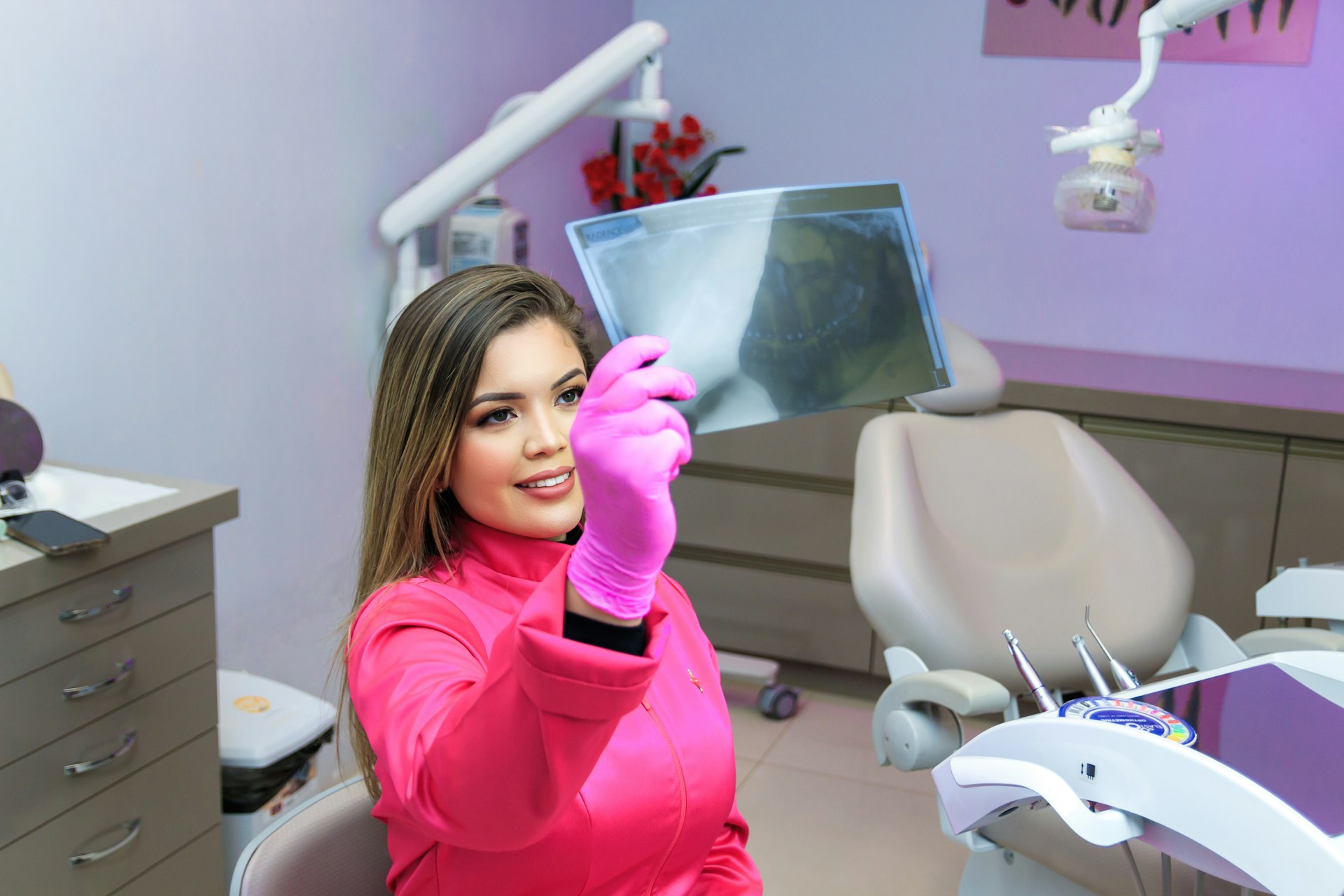Unlocking Career Opportunities with an Exercise Science Degree: Pathways, Certifications, and Steps Forward

Photo by Gabriel Martin on Unsplash
Introduction: Why an Exercise Science Degree Opens Doors
Pursuing a degree in exercise science provides a versatile foundation for a wide range of careers in fitness, healthcare, education, and corporate wellness. With growing interest in health and preventative medicine, the demand for professionals who understand human physiology, movement, and wellness is on the rise. This article explores actionable pathways, industry certifications, and practical steps to leverage your degree for a fulfilling career.
1. Fitness and Personal Training Careers
One of the most direct applications of an exercise science degree is in the fitness industry. As a personal trainer , you can work one-on-one with clients to help them achieve specific health goals, improve performance, and maintain motivation. According to the Bureau of Labor Statistics, the role of fitness trainers and instructors is projected to grow by 10% through 2026, reflecting a sustained investment in personal health and wellness [2] . Median annual salaries for personal trainers are reported around $40,700, with flexibility in work settings-from private studios and gyms to corporate wellness programs [1] .
To enhance your credentials and marketability, consider pursuing certifications such as the
National Academy of Sports Medicine (NASM) Personal Trainer Certification
or the
American College of Sports Medicine (ACSM) Exercise Physiologist Certification
[3]
. Many programs integrate certification prep into their curriculum, and some employers require these credentials.
2. Allied Health and Clinical Roles
Exercise science graduates often find meaningful work in allied health professions. For example, becoming an exercise physiologist allows you to design fitness programs for patients recovering from injury, managing chronic disease, or seeking improved wellness. These professionals analyze medical histories, conduct stress tests, and tailor exercise prescriptions. The median annual salary for exercise physiologists is reported at $50,280, with job growth expected at 13% by 2030 [3] .
Some graduates pursue further education to become physical therapists , occupational therapists , or registered nurses . These roles typically require graduate-level training and licensure. For example, to become a registered nurse, you must complete an accredited nursing program and pass the NCLEX-RN exam. Exercise science provides a strong pre-requisite background for these advanced degrees [1] .
3. Strength, Conditioning, and Athletic Training
Another rewarding route is working as a certified strength and conditioning coach or athletic trainer . Strength and conditioning coaches develop programs to improve athletic performance, reduce injury risk, and support athletes’ overall development. Athletic trainers focus on injury prevention, emergency care, and rehabilitation for athletes in schools, colleges, or professional sports teams [2] . These roles often require certifications such as the Certified Strength and Conditioning Specialist (CSCS) or Board of Certification for the Athletic Trainer (BOC-ATC).
To pursue these careers, research programs accredited by the relevant certifying bodies and inquire about internship or fieldwork opportunities to gain hands-on experience.
4. Health Education and Community Wellness
Exercise science majors are well-equipped for roles as health education specialists or wellness program managers . In these positions, you’ll design and implement programs to promote healthy behaviors at the individual, group, or community level. Health educators often work in schools, corporations, hospitals, or nonprofit organizations, with a median salary of $56,500 and job growth projected at 17% through 2030 [3] .
To succeed, you may need to pursue additional certifications, such as the Certified Health Education Specialist (CHES) credential. Many organizations value experience with program management, assessment, and community outreach. Seek internships or volunteer opportunities to strengthen your resume.
5. Corporate Wellness and Fitness Management
Corporate wellness is a rapidly expanding sector. Large employers hire wellness coordinators and fitness center managers to oversee employee health initiatives, conduct fitness assessments, and organize wellness events. These roles are ideal for those who enjoy program administration, leadership, and developing a culture of wellness within organizations [2] .
To enter this field, pursue internships in corporate wellness or facility management, and consider certifications in workplace wellness or group fitness instruction. Understanding the unique needs of workplace populations is essential for success.
6. Rehabilitation and Special Populations
Graduates can specialize in rehabilitation, working as rehabilitation specialists or cardiac rehabilitation professionals . These roles involve designing and supervising exercise programs for clients with chronic illnesses, heart disease, or other special conditions. You may work in hospitals, clinics, or outpatient centers, often as part of a multidisciplinary team [6] .
Some positions may require additional training or certification (e.g., Certified Clinical Exercise Physiologist from ACSM). To get started, explore job postings in rehabilitation clinics and seek hands-on experience through practicums or shadowing professionals in the field.
7. Education and Academic Pathways
If you’re passionate about teaching, consider a path as a physical education teacher or college instructor . Physical education teachers introduce children and adolescents to the value of physical activity and lifelong fitness. Requirements typically include a bachelor’s degree in exercise science or related field and a state teaching certification [2] .

Photo by Will Suddreth on Unsplash
For those interested in higher education, pursuing a master’s or doctorate can lead to roles in academia or research. College instructors and university professors teach, conduct research, and contribute to the scientific advancement of exercise science.
8. Certifications and Continuing Education
Certifications are essential for many exercise science careers. Some widely recognized certifying organizations include:
- National Academy of Sports Medicine (NASM)
- American College of Sports Medicine (ACSM)
- National Strength and Conditioning Association (NSCA)
- Athletics and Fitness Association of America (AFAA)
To select the right certification, review job postings in your desired field, or consult with academic advisors. Many programs prepare students for these exams, and some employers may offer reimbursement for certification fees.
9. How to Access Opportunities and Next Steps
To begin your career, follow these steps:
- Identify your area of interest within exercise science.
- Research required certifications or licensure for your chosen path.
- Gain practical experience through internships, volunteering, or part-time work.
- Network with professionals by joining industry associations, attending local events, or connecting on professional platforms like LinkedIn.
- Consult your college’s career services office for resume reviews, job leads, and interview preparation.
For certification information, visit the official websites of organizations such as NASM, ACSM, or NSCA. If you wish to become a certified personal trainer or exercise physiologist, search for “NASM certification” or “ACSM certification” to access application details and exam registration. For teaching or allied health roles, check your state’s department of education or health licensing board for requirements.
10. Overcoming Challenges and Alternative Pathways
Some roles require advanced degrees or additional certifications, which can be time-consuming and costly. If immediate employment is your goal, focus on entry-level roles such as personal training, group fitness instruction, or wellness coaching while pursuing further education part-time. If you encounter difficulty securing a full-time role, consider freelance fitness coaching, online wellness consulting, or health education outreach in your community.
Alternative pathways include transitioning into related fields such as sports marketing, medical device sales, or health technology. The foundational knowledge gained through an exercise science program is highly adaptable to emerging fields focused on health and human performance.
Conclusion: Maximizing Your Degree
An exercise science degree is a launchpad to numerous dynamic careers. Whether your passion lies in direct client care, education, program administration, or clinical rehabilitation, your academic foundation and practical skills will serve you well. Pursue industry certifications, seek hands-on experience, and stay informed about new developments to unlock the full potential of your degree.
References
- [1] Point Loma Nazarene University (2023). Top 20 Careers With a Master’s in Exercise Science.
- [2] Franklin University (2023). What Can You Do With an Exercise Science Degree?
- [3] Mount Mary University (2022). Discover careers in exercise science.
- [6] University of Cincinnati Online (2022). What Can You Do With an Exercise Science Degree?
MORE FROM promospotlight.com













